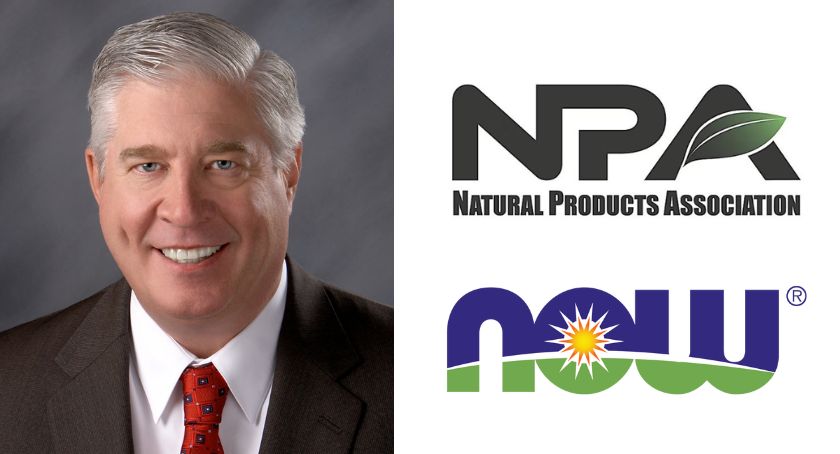Features
Manufacturing Dietary Supplements in Economic Uncertainty
Cost pressures are challenging brands to meet varying consumer needs.

By: Sean Moloughney

Balancing rising costs for materials, components, and logistics in today’s economic environment is a tall order for dietary supplement brands and the contract manufacturers they rely on.
At the same time, companies in the nutrition, health, and wellness markets have been tasked with meeting heightened consumer demand since the start of the pandemic. While market growth and disruption have moderated, there are still pain points that businesses must aim to alleviate.
Supply chain issues are still prevalent in many markets due to pandemic-related disruption, raw material shortages, and increased demand, according to Joe Zhou, CEO of TSI Group, which has 13 locations around the world, including contract manufacturing capabilities in China and Australia. “The expectation for this year is for a gradual improvement in the balance of supply and demand, but challenges may persist in certain sectors.”
Inflation and economic pressures have affected consumer spending, leading to a more cost-conscious market, Zhou said. “Brands are balancing these pressures by finding ways to reduce costs, such as optimizing their supply chain, while still maintaining the quality of their products.”
Some consumers have “traded-down” from premium products to more commodity-based goods that are perceived as better value. “There has been a shift towards private label products as consumers look for more affordable options,” said Zhou. “Some consumers are willing to trade-off premium branding for better value.”
Still, “there will always be a market for premium products,” said Scott Springer, COO of Valencia, CA-based manufacturer Lief Labs. “In previous economic downturns, the supplement industry was able to grow based on consumer demand for health and wellness,” he noted. “Today, inflation is the big driver that’s hurting the industry. As the cost of utilities and basic household goods increases, consumers start cutting back in different areas.”
Usually, supplements and nutritional products are among the last class of goods consumers trim from their budgets, Springer said.
However, when people need to pay 30-40% more for basic necessities like groceries and fuel, supplement purchases, for some, may eventually become “a want, not a need,” said Steve Holtby, president and CEO of Soft Gel Technologies, Inc., a Los Angeles, CA-based contract manufacturer of soft gelatin capsules for the dietary supplement industry.
“In our current environment, inflation of this magnitude is creating a lack of transparency in pricing to customers,” according to Madhav Pai, CEO and founder, of Somerset, NJ-based Aspire Pharmaceuticals. “This is because different components of a particular product may experience varying degrees of inflation. The real cost impact at that granular level is difficult to account for in a timely manner. Thus, active pricing management becomes a key driver to maintain economic sustainability.”

Back to Basics
Even amid uncertainty and a challenging economic environment, “the fundamentals of building a business remain the same,” Pai said. “However, in this economy, quick decisions based on the market intelligence you gather will give you an edge. Also, make sure you remain true to your core values as you grow and evolve. It is important to always do the right thing—especially when no one is looking.”Ultimately, customers expect the same quality from products, no matter the economy, said Holtby. “We need to remain hyper-vigilant in ensuring we continually produce top-quality products. When choosing a contract manufacturer, quality vs. price point is often an issue. Many companies focus on price, but forget that quality, service, and on-time delivery are factors that are more important in making a decision.”
Trust and integrity are crucial components in business relationships, he added. “A contract manufacturer should strive to be a ‘one-stop-shop’ for customers, where it can help from concept to completion (formulation, manufacturing, bottling, etc.).”
Being upfront and honest about business practices, sourcing, and product information is important to demonstrating transparency to current and prospective customers, said Zhou. “This can include providing detailed information about our products, production processes, and supply chain to build trust with our customers.”
Supply chains can be strengthened by significant changes, but it’s more common to see results through small, repeated improvements, according to Holtby.
“Every change that slightly reduces waste, speeds up delivery, or enhances quality can make a tiny, incremental improvement to sustainability. For some, this disruption signals a time to bring more of the supply chain back to the United States and source more ingredients domestically.”

Supply chain stress also emphasizes the need for innovation, Holtby said, “where companies can be climate-conscious and use fewer solvents as extraction methods. Contract manufacturers and all players in the supply chain need to deal with market pressures concerning the health, safety, and environmental aspects of their products. Making continuous improvement part of company culture and streamlining processes where it makes sense is an opportunity for growth.”
While supply chain problems have calmed down compared to early in the pandemic, the last few years have taught companies to expect the unexpected, noted Mike Young, executive vice president of sales and marketing at Vitaquest, West Caldwell, NJ.
“Companies that have the right people and systems in place are better prepared to balance supply and demand, and that is what we have done here at Vitaquest. We have enhanced our planning tools and expanded customer communication to minimize the disruption. We are really focusing on training our people, improving our systems and processes, and taking care of our customers, which has made us more agile than ever.”
With so much responsibility for quality of the end product, Holtby said it’s critical for contract manufacturers to develop protocols for testing and qualifying individual batches of raw materials. “Given the increasing globalization of the multi-layered and complex supply chain, the importance of frequent and thorough checkpoints as an integral part of supplier qualification cannot be overstated. Manufacturers are left with the formidable challenge of identifying safe and pure ingredients that they can reliably utilize in their products.”
An ingredient may be sourced from multiple international suppliers and mixed with the same ingredient from other parts of the world, which is then sold to a manufacturer by a broker,” Holtby continued. “Even though an ingredient has the same name, its farming methods, processing, extraction, and testing can widely vary. These factors obfuscate traceability of raw materials. Unless there is vertical integration from seed to bottle, there are very few paths that are entirely transparent from starting material to finished product for dietary supplements.”
Building redundancy in supply chains is also necessary, Holtby said, recommending companies have at least three approved suppliers per ingredient. “It is imperative for ingredient distributors and brokers to diversify their stock of available raw materials, especially extracts. This pandemic highlighted the impact of quarantine restrictions on supply—which created a bottleneck in the supply chain—because many of these dietary supplement raw materials came from China.”
‘We have seen a major influx of innovation from our partners and our suppliers.’
—Mike Young, Vitaquest
Product Trends
At the start of the pandemic, brands put many product plans on hold to keep pace with demand for immune health, stress, and sleep products. Today, many companies may be revisiting those plans.“We have seen a major influx of innovation from our partners and our suppliers,” said Young. “We have seen increased interest in gut health, probiotics, cognitive, mood-balance products, sports fitness, and products that are very specific to women’s health and men’s health. There are several subcategories within men and women’s health that are trending as well—energy, calm, sleep, weight loss—and there has been a lot of innovation and renewed focus on those relevant categories.”
Immune health certainly hasn’t gone away, he added. “We expect that zinc, elderberry, beta-glucans, and vitamins with improved bioavailability that support a healthy immune system will all be in demand.”
Zhou said he anticipates product development trends will include personalized nutrition, eco-friendliness and sustainability, and the continuation of immune products.”
Springer also noted consumer attention to environmental issues, including adoption of more sustainable packaging. “Those types of transitions are how some companies are trying to differentiate themselves.”
Holtby also noted consumer attention to corporate environmental and social efforts. Consumers now look for “purpose-driven products, meaning they want to buy sustainable and eco-conscious products from companies whose values are most like their own. For example, they want a company that keeps jobs in the U.S., treats animals humanely, reduces the amount of waste/trash they produce, and/or supports the community.”
Many consumers are also willing to pay more for products and brands that align with their values, he added. Businesses that demonstrate authenticity and transparency can gain a market advantage.
Personalization has been taking the wellness industry by storm, Holtby added, with consumers increasingly looking for “tailor-made fitness programs” to accelerate results.
“With the emerging science of DNA testing, people can now discover the role their genes play in their overall wellbeing,” he noted. “Various genetic interventions have been shown to increase lifespan. One area of research involves telomeres—the protein-bound structures at the ends of chromosomes. Telomeres shorten with cell division and, in some tissues, with age. The idea of activating telomerase to hasten the anti-aging process remains a powerful one.”




















